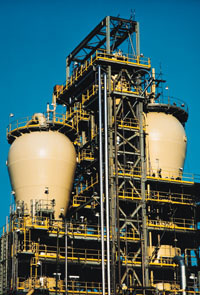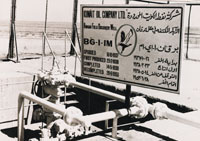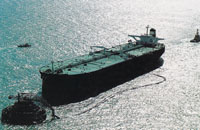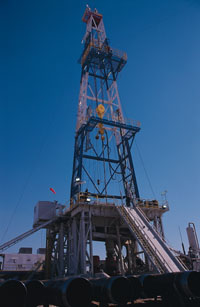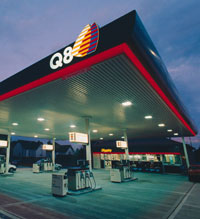
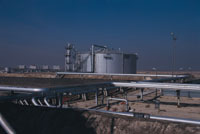 Kuwait aims to double output from its northern fields to approximately 900,000bpd
Kuwait aims to double output from its northern fields to approximately 900,000bpd
Fresh glitches are yet again threatening the progress of a $7 billion investment plan for northern Kuwait.
But those in favour of the so-called 'Kuwait Project' will at least be able to take heart from statements by new Oil Minister Dr Adel Khaled Al Sabih that he vows to push ahead with the plan to allow foreign oil majors to operate domestic fields.
Al Sabih has already said that the plan enjoyed the backing of the government and other state authorities, and has pledged to continue with the process started by his predecessor Shaikh Saud Nasser Al Sabah.
The latest hurdle cropped up earlier this month when a parliamentary panel declared that the plan could be in violation of the constitution, which bans production sharing.
The parliament's legal and legislative committee issued its verdict after studying a draft law presented by the outgoing government aimed at sanctioning the major policy switch.
The legal committee found that, unless constitutional suspicions in the draft law are corrected it will be marred with constitutional violations, according to a member of the panel.
This obstacle is the latest in a long line of setbacks for the proponents of the plan.
Under the 'Kuwait Project', oil majors are to invest an estimated $7 billion over 25 years to develop 'difficult' reserves in the North of the country. The ultimate goal is to double output of the fields from approximately 450,000 bpd at present to 900,000 bpd. The move will be the first time that foreign oil companies will have operated in the country since its oil industry was nationalised in 1975.
But the plan, which has been endorsed by the Supreme Petroleum Council (SPC) - the country's highest oil decision-making body - has faced trouble in parliament, where many members are trying to impose tight controls. Some have said that they feared irregularities in the award process.
One senior lawmaker in the state charged that the plan amounted to a ''sell out'' of the country's resources.
''From the data I have before me, I am certain that the project is a sell out for Kuwait,'' said Ahmad Al Saadun, a former speaker of parliament.
''A fierce fight is raging between local agents of the IOCs bidding for the project.
''Based on my calculations, local agents would make about $45 billion over the next 30 years. That figure could even go up to $98 billion,'' he claimed.
Al Saadun's calculations were based on agents receiving a minimum of $3 per barrel of oil extracted.
MPs have repeatedly expressed concern that influential Kuwaiti middle men were set to benefit most from the project, thus undermining the country's interests. Commercial law in Kuwait stipulates that a foreign company must have a local agent to operate in Kuwait.
For its part, Kuwait has assured parliament that a production sharing formula, banned by the constitution, was avoided and has stressed that the international oil companies would use technology which Kuwait lacks.
Shaikh Saud had defended the government's decision to shortlist majors on the grounds that this was a technical and financial, and not legal, issue.
The new Minister has said that there is an agreement ''in principle'' between the government and parliament on the need for the project ''but there could be differences over the modality of implementing the plan''.
The parliamentary committee is now in the long process of debates and checks, before sending it to the full parliament for approval.
But despite potential difficulties, some oil majors have now collected key reservoir information from Kuwait's data rooms, and are in the process of analysing the data.
Royal Dutch/Shell and Chevron have both received data so far.
Executives have said that the companies have received a box which includes magnetic tapes with reservoir and other information, which they can take away. The majors have had to sign confidentiality clauses to do so.
Officials involved in the bidding have refused to disclose the asking price for the data, but several have said that it was ''comparatively high''. One figure being suggested is $500,000 for the data.
Kuwait formally launched the plan in January, sending out to pre-qualified firms Initial Process Protocol (IPP) documents which detail the long process of reaching the contractual stage.
The qualified international companies, which are Chevron, Conoco, Exxon Mobil, Texaco, Royal Dutch/Shell, BP, Italy's Eni and France's TotalFinaElf, were approved by the SPC. Eight other midranked oil companies are expected to be offered non-operating functions such as funding, manpower and support.
For US firm Chevron, the project is a chance to help ''satisfy Kuwait's goals and targets.''
''Obviously, the Kuwaitis are looking at agreements that will not violate their constitution and we look forward to working with them,'' said a company official.




















































































